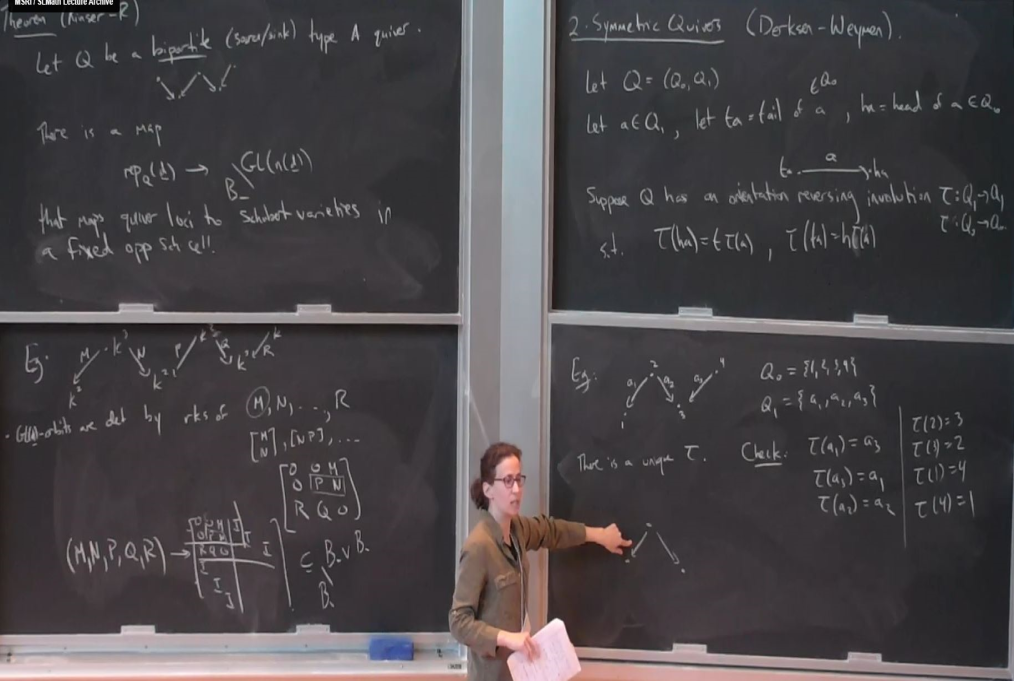Recent Developments in Commutative Algebra: "Determinants, Pfaffians, symmetric quivers, and symmetric varieties"
Presenter
April 16, 2024
Keywords:
- Commutative rings
- modules
- ideals
- mixed characteristic
- Frobenius powers
- test ideals
- tight closure
- perfectoid methods
- singularities
- birational algebraic geometry
- multiplier ideals
- symbolic powers
- syzygies
- free resolutions
- homological methods
- derived categories
- polynomials
- monomial ideals
- toric varieties
- Schubert varieties
- combinatorial commutative algebra
- equivariant ideals
- maximal Cohen-Macaulay modules
- applications of representation theory
- twisted commutative algebras
- D-modules
- local cohomology
- computational commutative algebra
- graded rings and projective varieties
MSC:
- 05Exx - Algebraic combinatorics
- 11Sxx - Algebraic number theory: local fields
- 11Txx - Finite fields and commutative rings (number-theoretic aspects)
- 13-XX - Commutative algebra
- 14-XX - Algebraic geometry
- 16Exx - Homological methods in associative algebras {For commutative rings
- see \newline 13Dxx
- for general categories
- see 18Gxx}
- 18Gxx - Homological algebra in category theory
- derived categories and functors [See also 13Dxx
- 16Exx
- 20Jxx
- 55Nxx
- 55Uxx
- 57Txx]
- 19Axx - Grothendieck groups and $K_0$K_0 [See also 13D15
- 18F30]
- 19Lxx - Topological $K$K-theory [See also 55N15
- 55R50
- 55S25]
- 20Jxx - Connections of group theory with homological algebra and category theory
Abstract
Type A quiver loci are a class of generalized determinantal varieties. Special cases include classical determinantal varieties and varieties of complexes. Since the 1980s, mathematicians have found connections between these quiver loci and Schubert varieties in type A flag varieties. These connections were used to gain insights into commutative-algebraic properties of type A quiver loci (e.g., singularities, Hilbert series).
In this talk, I will motivate and recall some of this story. I will then discuss the related setting of H. Derksen and J. Weyman's symmetric quivers and their representation varieties. Special cases include varieties defined by minors (or Pfaffians) of symmetric and skew-symmetric matrices. I will show how one can unify the study of commutative-algebraic properties of finite type symmetric quiver representation varieties with corresponding properties for Borel orbit closures in symmetric varieties G/K (G = general linear group, K = orthogonal or symplectic subgroup). Finally, I will provide some commutative-algebraic consequences.
This is joint work with Ryan Kinser and Martina Lanini.
